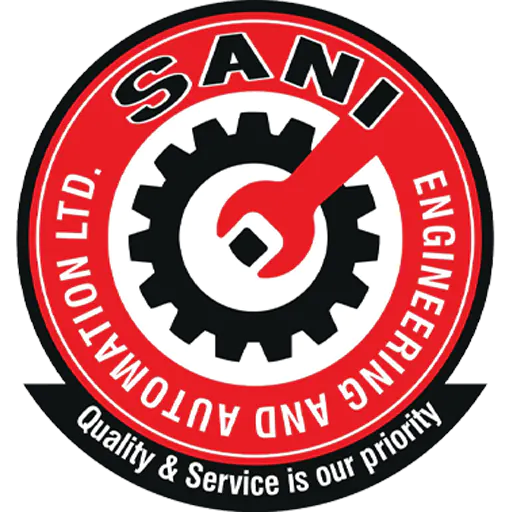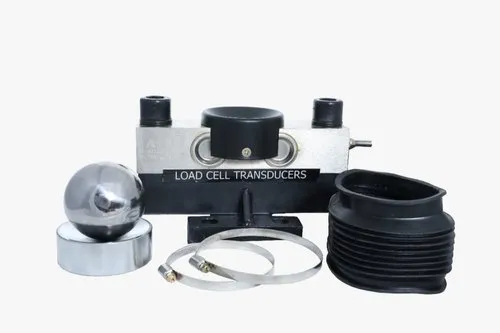A load cell is a precision device that converts mechanical force (such as weight or compression) into an electrical signal.
When a truck drives onto a weighbridge, the weight of the vehicle and its cargo is transferred through the structure to the load cells beneath. These cells slightly deform under pressure, and strain gauges inside them detect that deformation. The resulting electrical signal is processed and converted into a digital weight reading.
Because of this mechanism, load cells are truly the heart of any accurate truck weighing system.
Tip: When setting up truck scales in harsh outdoor environments, always choose load cells designed for heat, moisture, and dust resistance. Proper installation and calibration matter just as much as the hardware itself.
Why are load cells critical for accurate truck weighing solutions?
Ensuring legal compliance and safety
Overloaded trucks damage roads, increase accident risks, and may result in heavy fines. Using accurate load-cell-based weighing systems ensures that every truck stays within safe and legal weight limits.
Improving business efficiency
Precise weighing helps avoid costly under- or over-loading. Whether your operation involves mining, construction, agriculture, or transport logistics, knowing the exact load improves billing accuracy, inventory management, and fuel efficiency.
Longevity, reliability, and low maintenance
High-quality load cells offer excellent long-term stability. Their robust design reduces downtime and maintenance costs, keeping your weighbridge operational year-round.
Example tip: During installation, make sure load cells are perfectly aligned and protected from side impacts. Even premium-grade load cells can lose accuracy if not mounted correctly.
What types of load cells are used in truck weighing systems?
Strain-gauge load cells
The most common type, these use bonded strain gauges that measure changes in resistance when a force is applied. They are highly accurate and reliable for heavy-duty applications.
Compression and shear-beam load cells
These are typically used for truck scales and weighbridges. Compression load cells handle vertical forces, while shear-beam designs offer superior stability under dynamic, shifting loads.
Digital load cells
Modern truck weighing systems increasingly use digital load cells. They include built-in electronics for signal processing, diagnostics, and calibration. Digital technology minimizes interference, improves precision, and enables remote monitoring.
Tip: Consider investing in digital load cells with self-diagnostic features — they reduce service calls and downtime.
How should load cells be installed for maximum accuracy?
Why placement matters
Improper placement can lead to uneven load distribution and inaccurate readings. Load cells should be positioned symmetrically and supported on a stable foundation to share the load evenly.
Mounting, alignment, and calibration
- The weighbridge deck must move freely without friction or obstruction.
- All load cells should carry an equal portion of the total load.
- Schedule regular calibration and inspections — even small drifts can cause significant weighing errors over time.
Environmental considerations
Outdoor installations are exposed to moisture, dust, and temperature changes. Use load cells with high IP ratings, corrosion-resistant materials, and sealed junction boxes.
Tip: Always plan for easy maintenance access and periodic leveling checks. Proper protection and routine care extend both accuracy and lifespan.
What are the main benefits of using load-cell-based truck weighing systems?
- High accuracy and repeatability – Load cells deliver precise and consistent measurements every time.
- Faster throughput – Automated readings allow trucks to be weighed quickly, reducing waiting times.
- Data integration – Modern systems can integrate weight data with ERP, inventory, and fleet management systems.
- Cost savings – Less maintenance and longer service life lower the total cost of ownership.
- Trust and compliance – Certified load cells ensure legal trade compliance and minimize disputes between buyers and sellers.
Tip: Highlight these advantages when working with clients in industries such as logistics, mining, or agriculture. Accurate weighing helps build trust and efficiency across operations.
What are common challenges in truck weighing systems — and how to avoid them?
- Improper installation – Misalignment or poor mounting reduces accuracy. Always follow manufacturer specifications.
- Environmental damage – Protect load cells from water, corrosion, and extreme temperatures.
- Structural settling – Uneven foundations or shifting supports can affect readings.
- Neglected calibration – Regular calibration and zero checks are essential for sustained accuracy.
Tip: Create a simple daily check routine. Inspect zero balance, warning indicators, and weighbridge condition before operations begin.
FAQ – Frequently Asked Questions
Q: Can any load cell be used for truck weighing?
A: No. Truck weighbridges require heavy-duty load cells designed for large dynamic loads, outdoor use, and legal-for-trade certification.
Q: How many load cells does a weighbridge use?
A: Most truck scales use between six and twelve load cells, depending on size and capacity, to ensure even weight distribution and redundancy.
Q: How often should load cells be calibrated?
A: At least once a year is recommended, though high-use or harsh environments may require more frequent calibration.
Q: What is the role of a weighing system integrator like Sani Engineering & Automation Ltd?
A: The integrator ensures correct load cell selection, installation, wiring, and calibration. They also provide ongoing support, maintenance, and system integration for reliable long-term performance.
Final Thoughts
For industries that rely on bulk transport, mining, construction, or logistics, accurate truck weighing is more than just a compliance requirement — it’s a competitive advantage.
At Sani Engineering & Automation Ltd, we specialize in designing and installing high-precision load-cell-based weighing systems that deliver accuracy, durability, and efficiency across Uganda and East Africa.
When you invest in quality load cells and professional installation, you gain more than numbers on a screen — you gain control, confidence, and long-term savings.



